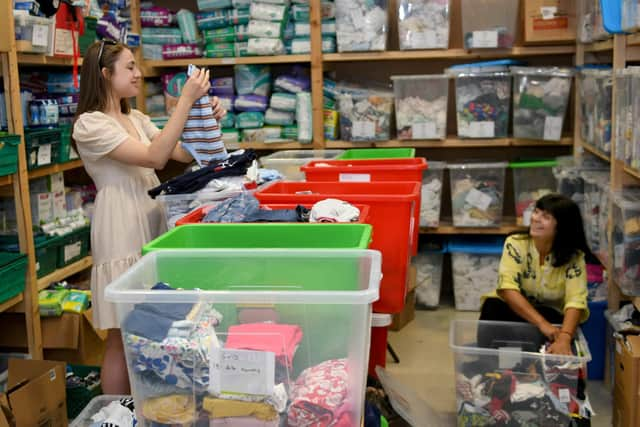Holistic medicine and carer support are needed more widely as poverty rises - Dr Hannah Barham-Brown
The nature of General Practice is that, within a couple of minutes of meeting, my patients are often sharing intimate details of their lives – a privilege I could never take for granted. Whilst some of my appointments are straightforward – throat infection gets antibiotics – they are generally the minority.
The art of medicine is in pulling together various elements of a patient’s life – their housing situation, whether they are socially isolated – and combining this with their physical or mental health, to ensure that the care we provide is appropriate for their circumstances. The most useless medication I could prescribe is one that the patient won’t or can’t take.
Advertisement
Hide AdAdvertisement
Hide AdAt a time when the cost of living is soaring, and an estimated 12 million people will be pushed into poverty in the next year, this holistic approach to medicine is one that I think we need to take towards society more widely.


Before the pandemic, social care in the UK was on its knees. This will come as no surprise to the many disabled and older people who have struggled to get the help they need for the most basic of daily tasks – or their families, who have often worked to pick up the slack, on top of their jobs, raising children and running a home. In 2019 the social care workforce had vacancies of around 125,000 – and then a pandemic hit. Working in care homes during the first lockdown, I saw the results of these shortages in an unimaginably hard situation.
A workforce already on its knees was now trying to care for the most vulnerable members of society in the face of a virus which claimed the lives of 312 social care workers between March and July 2020 alone. They knew that to come to work was to risk not only their lives but those of their loved ones – and they continued to care.
The shortage of care staff has only worsened, and now whilst we process the collective trauma we have experienced, we find ourselves facing a new challenge. Many are dreading the email we all now know to expect from our energy providers, telling us our bills will soar in the coming months.
Advertisement
Hide AdAdvertisement
Hide AdCouncil Tax too continues to climb, and many of us are left wondering how we’ll feed our children, rent our houses, and not sink into debt, poverty or both. The financial buffer many of us have relied on to keep us warm and fed even on a rainy day could now be torn through by a break-up, a broken down car, or an unexpected dental bill. If you’re juggling all of this and a relative who needs you to cover their care needs, the future must seem very bleak.
One of the many dangers of an economic situation like this is that we become more protectionist – focusing on our own welfare at the detriment of those who most need our help, whether they be refugees from war-torn countries, disabled people, or older people. This is where I would hope that holistic approach a good clinician has towards their patient can be utilised across society.
Tempting as it is to lay the responsibility for ‘fixing’ the situation at the feet of politicians (who, don’t get me wrong, have a lot of questions to answer about how things have been allowed to get so bad when the rich only seem to get richer, particularly in the South), they are not going to pull us through this.
What will get us through the financial turbulence to come is our communities. As a southerner who chose to make Yorkshire my home, I will forever be grateful for the welcome and support of those I have met, in my village, my workplace, and my county.
Advertisement
Hide AdAdvertisement
Hide AdAs a wheelchair user, I know all too well how one’s life can change in an instant, and the importance of having your community to pull you through. There are some fantastic organisations bringing together volunteers, donors, and those who need support, working across Yorkshire.
As individuals, it is nigh on impossible to change the world around us – trust me, I’ve tried – but groups like FoodCycle in Harehills and Beeston, who provide community meals, or Leeds Baby Bank, who ensure no child goes without by giving equipment to new families, really are changing lives and our communities for the better. I see the impact these organisations and many others have every day as a GP.
They are the carers, and it is vital for all of us that we support them.
Hannah Barham-Brown is a Leeds-based doctor and a deputy leader of the Women’s Equality Party.